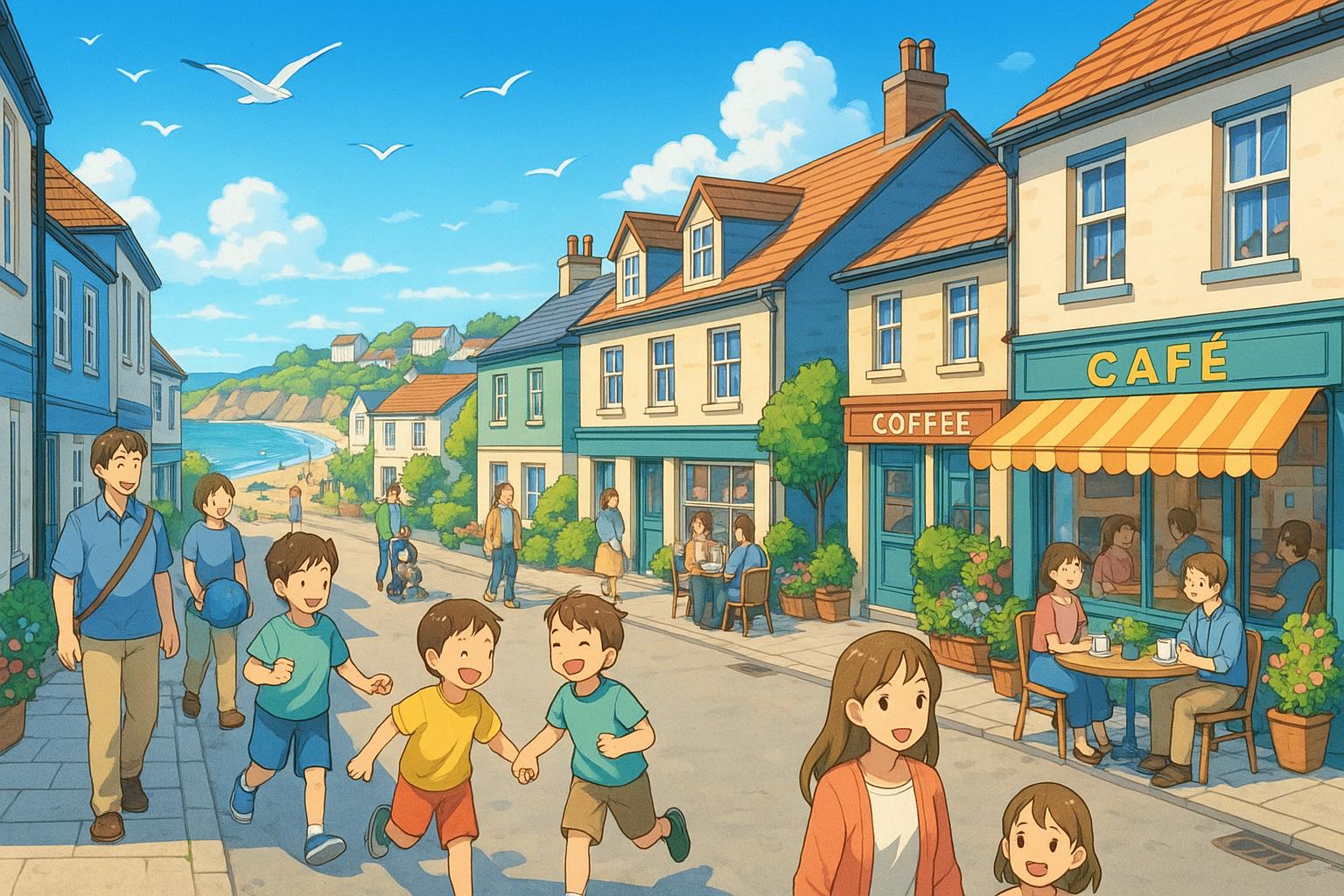Newquay, once notorious for its wild parties and described as “Britain's Magaluf,” has undergone a remarkable transformation, shedding its raucous reputation thanks to a substantial clean-up initiative and strategic policy changes. The Cornish seaside town is now largely unrecognisable, with a focus on attracting families and fostering a more respectful environment.
In 2009, following two tragic fatalities linked to the town’s nightlife, the Newquay Council launched the "Newquay Safe" campaign. Central to this initiative was the controversial ban on mankinis—those infamous revealing swimsuits popularised by the character Borat—as well as other forms of “inappropriate clothing” in public spaces. This move aimed not only to curb public disturbances but also to redefine Newquay's image from a hub of stags and hens into a more welcoming family-friendly destination.
The results were striking. By 2012, reports from Devon and Cornwall Police indicated a dramatic 20% reduction in crime since the ban's implementation, with anti-social behaviour incidents plummeting from 685 to just 286. Superintendent Julie Whitmarsh noted the positive changes that took place, stating that the initiative helped foster a safer and more appealing atmosphere for visitors and locals alike.
Today, former party hotspots have been overtaken by independent coffee shops, charming boutique stores, and family-friendly attractions. Residents and business owners alike speak glowingly of the improved atmosphere, with family outings along the peaceful coastline now commonplace. Maddie Grover, a 25-year-old arcade worker, acknowledges that while stag dos still occur, they are far more manageable than in the past, particularly following the closure of the infamous Bertie's nightclub, which had long been a flashpoint for rowdiness.
The town's high street, once a battleground of drunken revellers in mankinis, is now lined with trendy skate and surfwear shops, allowing for a much more pleasant shopping experience. Andy, a local shop employee, reflects on this shift: “The high street is a little bit rowdy in the central area, but it’s better now; it’s calmer. There aren’t as many fights.” This sentiment resonates throughout the community, as many residents express relief at the town's newfound tranquillity.
However, while the overall climate in Newquay may have improved, locals continue to grapple with issues surrounding property and tourism. The surge of second homes in the area, driven largely by outside buyers, has exacerbated housing affordability, pushing long-term residents out of their own communities. Mark Dixon, a long-time resident, laments the transformation of local guest houses into private residences, leading to a diminishment in available accommodations that once supported the town’s bustling tourist economy.
Peron Wills, a climbing instructor, acknowledges that, despite the town's issues, he appreciates the small-town mentality that fosters a sense of community. “We want you to have a good time,” he says, emphasizing the importance of balancing tourism with the needs of residents. “But also we want to have a good time... don’t knock the bins over at 3am and wake everybody up.”
Despite the challenges, feedback from both locals and visitors indicates that Newquay is on the right path. The efforts made to ban inappropriate attire and mitigate excessive drinking have paid dividends. With a significant drop in crime rates and a developing sense of community, Newquay is successfully redefining its identity—one that values family-friendly experiences while still acknowledging the party atmosphere that once defined it.
The revival of Newquay serves not only as an example of effective local governance but also as a reminder of the enduring conflict between tourism and community integrity. As the town continues to navigate this complex landscape, it remains a symbol of resilience, demonstrating that even the roughest edges can be smoothed over with thoughtful planning and community engagement.
##Reference Map:
- Paragraph 1 – [1], [2]
- Paragraph 2 – [1], [3], [4]
- Paragraph 3 – [5], [6]
- Paragraph 4 – [1], [2], [3]
- Paragraph 5 – [1], [3], [5]
- Paragraph 6 – [7]
- Paragraph 7 – [1], [5]
- Paragraph 8 – [1], [6]
- Paragraph 9 – [1], [4]
Source: Noah Wire Services
